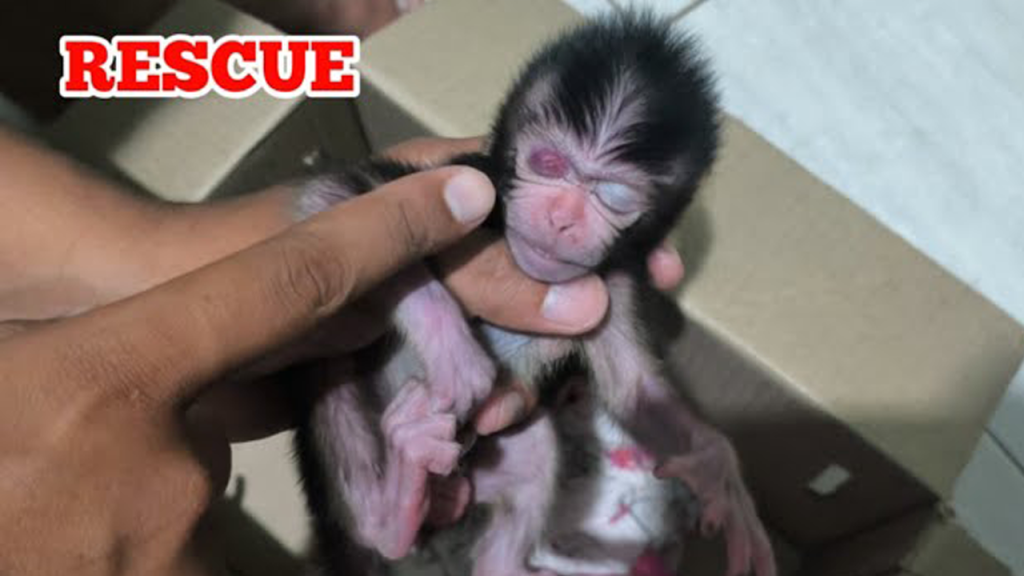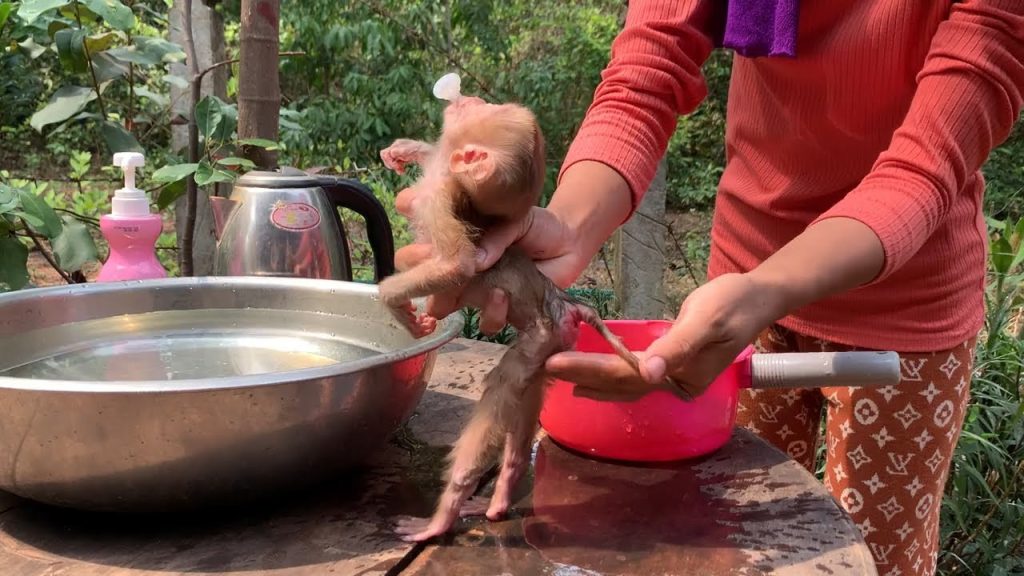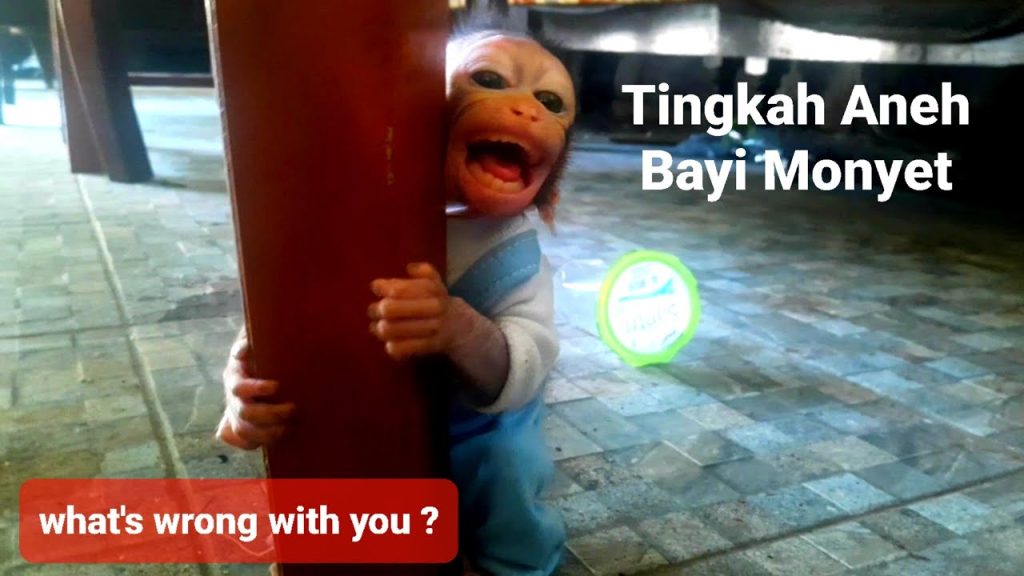In a peaceful corner of the park, where a natural monkey family lives freely among the trees, a mother monkey sat with her baby nestled close. The morning sun filtered through the leaves, warming the earth below. It was time for feeding, but today, something unusual happened.
The baby monkey, Nino, turned his head away from his mother’s breast and pouted. His mom, Sarika, gently tried to guide him back, but he stubbornly refused. She waited patiently, nudging him again, but Nino squeaked in protest and pushed her hand.
Sarika’s expression changed. She wasn’t angry, but serious. She stood up, lifted Nino by the scruff, and placed him on the ground a short distance away. The baby stared at her, confused and hurt. This was her way of teaching—when it came to food, especially at such a young age, refusal wasn’t a choice. It was discipline through distance, a mother’s firm but caring lesson.
Nino began to cry softly, looking toward her with pleading eyes. He crawled back slowly, inch by inch, and sat near her feet. Sarika didn’t reach for him immediately. She watched calmly, giving him a moment to understand. A minute later, she opened her arms. Nino hurried into her lap, clinging to her tightly.
This time, when she offered milk, Nino accepted without protest. He suckled quietly, his tiny hands wrapped around her arm, safe again.
In the natural world, wild monkey mothers teach their young through real experiences—patience, boundaries, and love. Sarika wasn’t cruel; she was doing what mothers have done for generations: guiding her baby with strength and care.
In the end, Nino didn’t just drink milk—he learned a life lesson about trust, respect, and the meaning of family.


